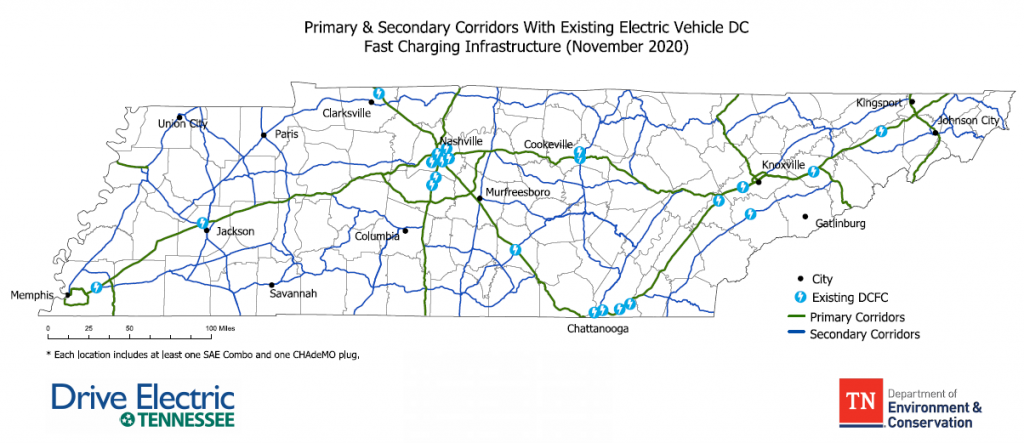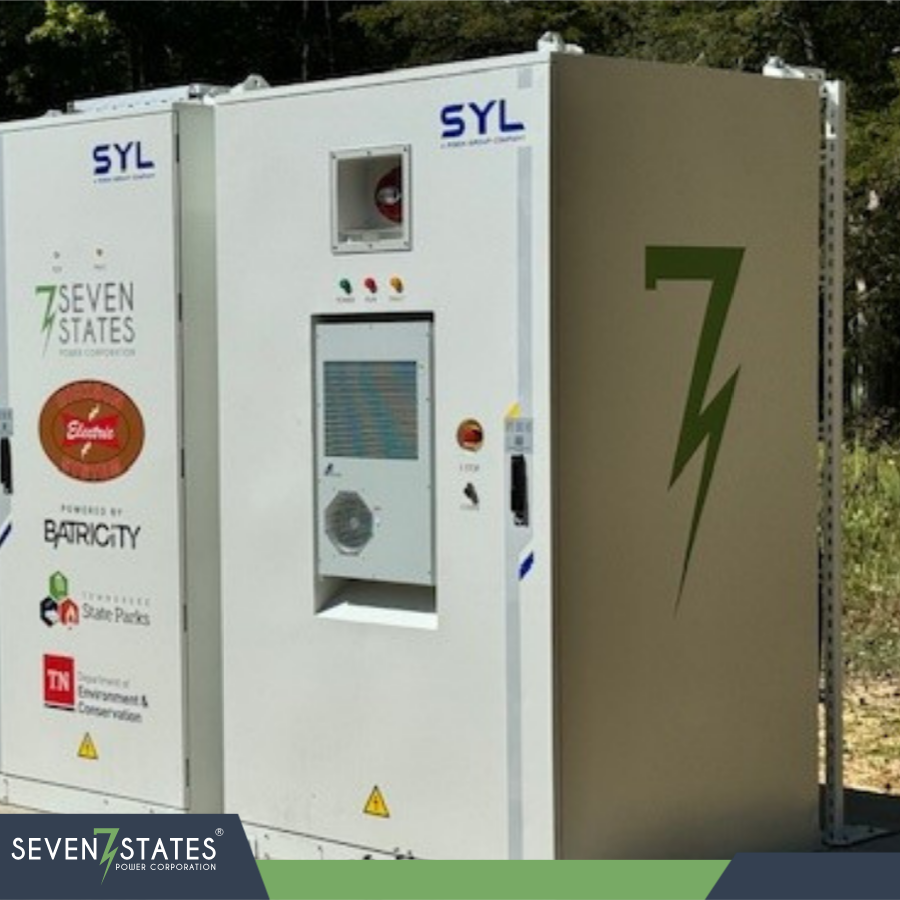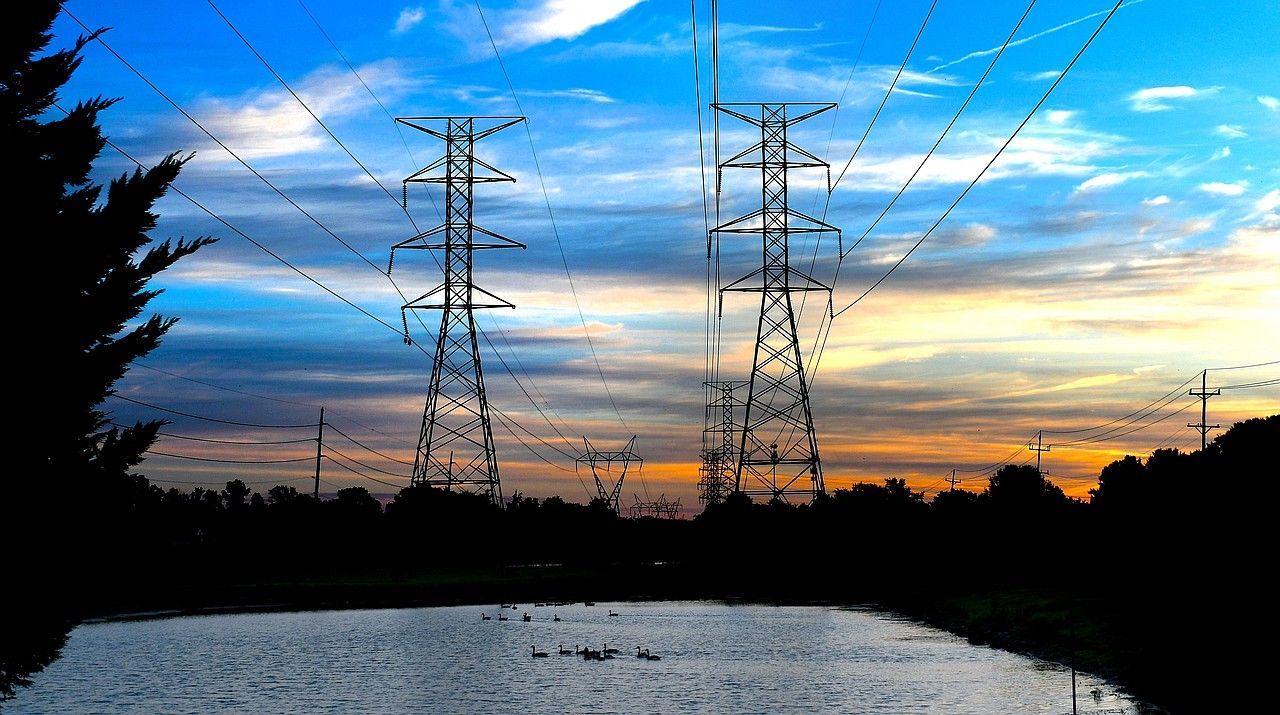
An EV fast charging station every 50 miles along Tennessee’s interstates and major highways – that’s the goal of the Tennessee Fast Charging Corridor Network, a collaboration between the Tennessee Valley Authority (TVA) and the Tennessee Department of Environment & Conservation (TDEC). Designed to help promote adoption of electric vehicles (EVs) by alleviating range anxiety while also advancing the State’s goal of establishing a statewide corridor fast-charging network that improves transportation efficiency, reduces vehicle emissions and strengthens the resiliency of Tennessee’s transportation network, this program will provide funding, through grants, to local power companies (LPCs) interested in installing EV fast-chargers as part of the network. And Seven States Power Corp. stands ready to help LPCs apply for those grants and get on the EV fast-charger map.
By working with LPCs in Tennessee to guide them through all stages of the process – from the grant application for TVA/TDEC’s distribution of funds, to site selection, identifying the right equipment, and the installation of their EV fast charger, Seven States works as an extension of the LPC’s own staff to deliver end-to-end service. While this program is specific to Tennessee, the Seven States team recently worked with two LPCs in Alabama to complete grant applications for their state’s fund to install chargers in their communities. With over 90 EV charger installations completed in two years, this experienced team delivers the know-how to make the entire process of EV charger installation seamless and easy for LPCs all over the Valley.
“The Tennessee Valley stands at the forefront of EV infrastructure readiness,” says James Ellis, vice president of partnerships and project development for Seven States Power. “And Seven States provides LPCs in the Valley with the expert guidance they need to support critical EV infrastructure for their community. And, of course, we can even help put their staff in the driver’s seat of an EV to better understand and promote the technology.”
In addition to bringing extensive EV knowledge to LPCs, Seven States Power can also offer generous discounts of up to $14,000 on the Chevy Bolt through an exclusive arrangement with General Motors, giving Seven States members a substantial incentive to invest in EVs. Research has shown that one of the fastest paths to EV adoption in a community is to normalize their use. By accessing the Seven States partnership with General Motors to add EVs to a fleet, LPCs can help drive awareness of EVs and facilitate EV adoption in their communities.
“Even in a rural market like ours,” says Jon Turner, manager of marketing and public relations for 4-County EPA, Columbus, Miss., “there’s a growing appetite for EVs. We thought we needed to start by educating ourselves and our members, so we worked with Seven States to purchase a Chevy EV through Seven States’ purchasing program and install a private charger at our office. Now is the time to move from the lagging side to the leading side on adoption of this technology and help push the Valley to the tipping point for EV growth.”
Having visible, publicly accessible EV chargers throughout a community can also help drive EV adoption by helping to alleviate concerns residents may have about running out of charge. “EV chargers aren’t a novelty anymore but we still need to educate communities. Seven States can help you identify your goals and figure out the best way to accomplish them,” adds Turner.
For more details on TDEC’s partnership with TVA, visit their website here.




